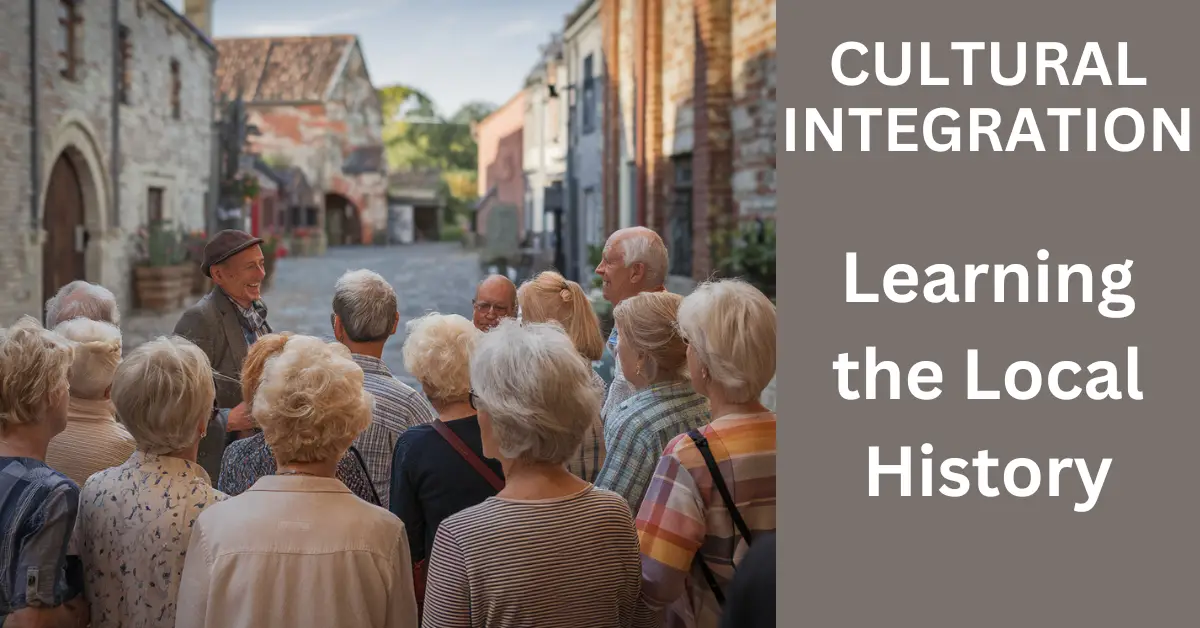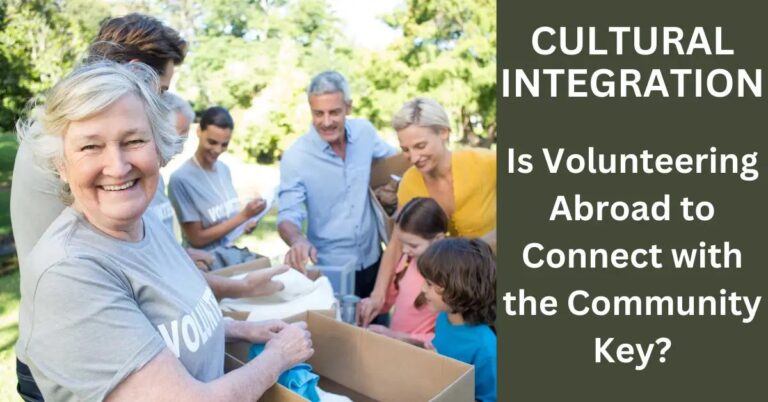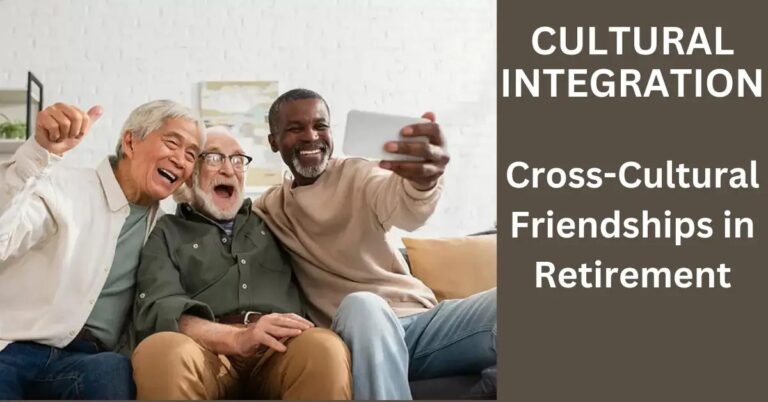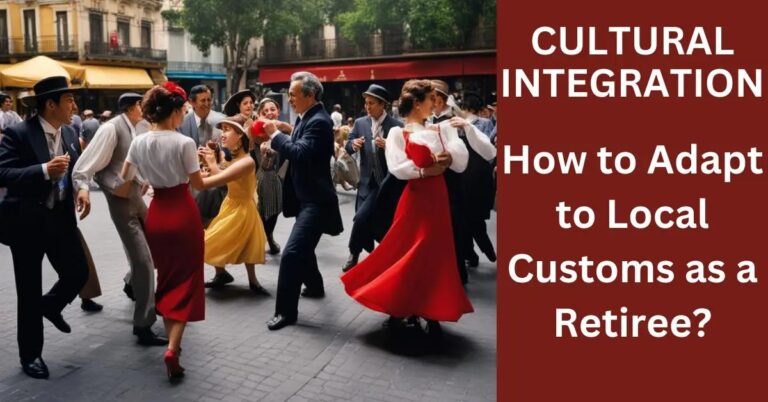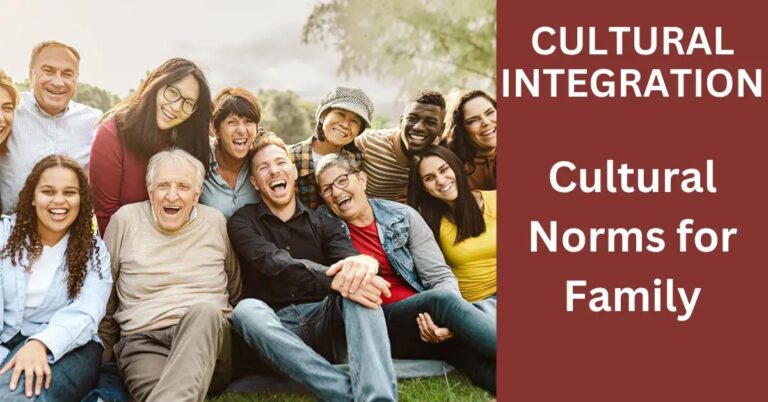TL;DR:
- Join retiree-focused historical societies for engaging activities.
- Attend museum tours and community history workshops for learning and socializing.
- Listen to community elders for personal and historical insights.
- Connect with local heritage groups for preservation activities.
- Explore heritage sites and historical landmarks using maps for self-guided tours.
- Participate in cultural walking tours and volunteer at historical sites to deepen engagement.
- Capture personal stories through oral history projects to preserve for future generations.
- Contribute by volunteering in preservation projects and joining advocacy groups.
- Share experiences through storytelling circles and crafting memoirs.
- Support preservation campaigns through participation or donations.
- Understanding and preserving history builds community pride and generational connections.
As a retiree, your days of exploring the world are far from over, but digging into local history could be your next adventure. Have you thought about uncovering the stories nestled around you? From joining retiree-focused historical societies to lively chats with community elders, there's rich history waiting for you to explore. Let’s dive into how retirees can connect with their new towns through history, artifacts, and tales.
How Can Retirees Engage with Local History?
Exploring local history can be quite an adventure. You might ask, "How can I learn local history?" One simple way is to join retiree-focused historical societies. These groups often welcome new members. They hold meetings, share stories, and have fun events that teach the past.
Participating in local museum tours for seniors is another option. Museums often have special tours that fit your pace and interests. You can see amazing exhibits and learn directly from guides who know a lot about the area's history.
Attending community history study workshops lets you dive deep into specific topics. These gatherings are perfect to discover your town's past in detail. You sit around with others who are curious, just like you. Everyone learns together, and it's a wonderful chance to make new friends.
Engaging with community elders for personal stories is another rewarding idea. When you listen to someone who lived through interesting times, it brings history to life. You can hear about families, events, and changes that aren't in books. Their personal stories connect us to a shared past.
Connecting with local history and heritage groups can also be fulfilling. These groups focus on preserving history for everyone to enjoy. By joining, you help keep traditions alive. You get to participate in activities like fairs and reenactments, too.
So, what are the benefits of studying local history? First, you get to know your community better. You understand where it came from and how it grew. This connection helps you feel rooted, even if you're new to the area. Knowing history helps us appreciate what we have and where we come from. History creates a sense of belonging and bridges generations.
What Activities Help Retirees Explore Historical Sites?
Participating in local history is a joy for retirees. It combines fun with learning. Let's talk about ways to do this.
Heritage sites exploration for retirees gives an exciting glimpse into the past. By visiting these places, I gain a deeper understanding of my community. Many sites offer historical tours for retirees, guiding us through time and stories.
Another useful tool is a historical landmarks map for seniors. It shows important sites around the area. I use these maps to plan self-guided tours, moving at my own pace. It turns a simple walk into a journey through history.
Cultural walking tours for retirees are a fantastic group activity. Led by knowledgeable guides, these tours enrich my understanding of cultural spots. Walking together with others who share my interest makes the experience richer and more engaging.
Volunteering at local historical sites is another wonderful way to learn. This opportunity allows me to both learn from and teach others. It’s rewarding to meet new people and share stories. This experience shows us how different generations connect through history.
Retirees can also engage in oral history projects. By capturing personal community stories, I help preserve history for future generations. This involvement is personal and significant. It keeps the voices of elders alive in our community.
Why is it important to teach local history? It builds a sense of belonging and pride. How would you start teaching your students about local history? Use stories and visits to these historic places. This method connects them to where they live and its heritage.
Let's dive in, explore, and preserve our history together. These activities help me see the past in a lively, relatable way. Each step I take brings me closer to the remarkable stories of yesterday.
How Can Retirees Contribute to Historical Preservation?
Studying local history offers many benefits. It connects us to our roots. It also teaches important lessons about community growth and resilience. It helps us appreciate and preserve cultural heritage. But how can one contribute to preserving local history? Use the SQuAD method. Start by volunteering in conservation and preservation projects. Retirees can join efforts to protect historical sites. Your help ensures these places remain for future generations.
Join heritage preservation advocacy groups to make a stronger impact. Together with others, raise awareness for the need to keep history alive. These groups often hold events, workshops, and protests to protect important places.
You can also share stories by participating in retiree storytelling circles. These circles let you share and listen to others' personal histories. Through storytelling, you keep old tales alive and inspire interest in the past. This activity not only informs but also connects people across generations.
Crafting history memoirs during retirement is another great option. Write articles or short stories about your experiences and community. A memoir helps younger people understanding their roots from a personal viewpoint. By documenting local history, you create valuable resources for the future.
Supporting campaigns and initiatives is vital. Sometimes, preservation projects need money and public support. Retirees can help by participating in campaigns or donating to funds. Together, these actions safeguard historical sites and cultural traditions.
Participation in these activities is a rewarding experience. As a retiree, your role in history preservation is meaningful. You contribute by keeping our shared past alive and relevant. It's a chance to learn, connect, and give back. It's a constant journey of discovery and contribution.
Conclusion
We've explored how retirees can dive into local history. Join historical societies and visit museums to uncover your town's past. Listen to elders share stories, and connect with history groups to deepen understanding. Explore historical landmarks with guided maps and take part in walks that bring history alive. Volunteer at preservation sites and engage in storytelling to leave a lasting legacy. History is more than the past; it's a bridge to culture and community. Embrace it, learn from it, and make it part of your exciting new chapter.

